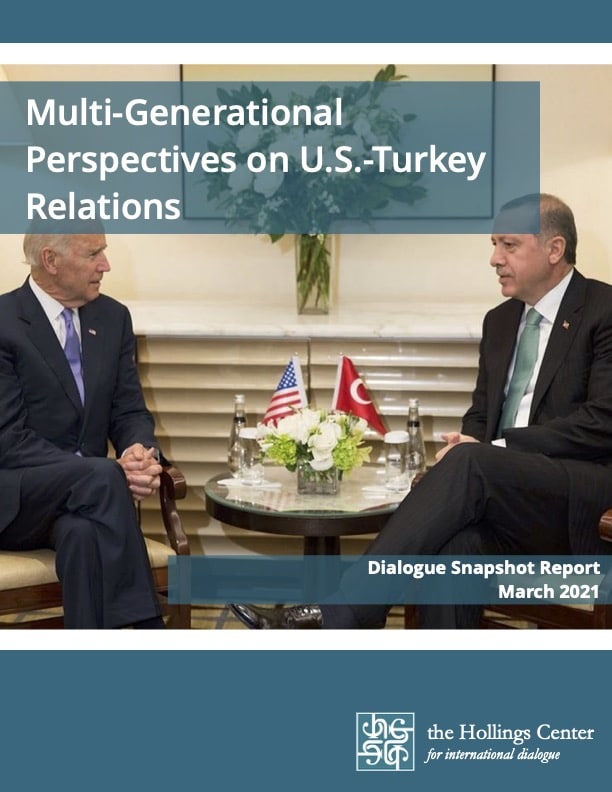DIALOGUE SNAPSHOT REPORT
November – December 2020
Online
Dialogue Summary
Notwithstanding serious challenges in U.S.-Turkey relations, both countries continue to share goals and interests across a broad range of geostrategic issues. The two countries continue to cooperate in certain fields, such as defense and counterterrorism. Despite the threat of tariffs and sanctions, trade relations continue with prospects for growth. Both Turkey and the U.S. also have mutual interests in promoting stability in the Middle East. Strategic reasons exist for the bilateral relationship to grow despite of challenges. What are these strategic reasons? What areas of cooperation exist? Are there new areas of collaboration that can help to move the relationship forward?
With the start of a new U.S. presidential administration, the Hollings Center conducted a two-day virtual meeting to evaluate the state of U.S.-Turkey relations and project possible ways forward. To create diversity of opinion and perspective, the dialogue was divided into two discussion groups. One featured a group of experts with decades of experience in the bilateral relationship and its facets. The second group contained rising next-generation analysts that could provide new perspectives.
Understanding the similarities and differences of different generational perspectives is important to a constructive, long-term relationship. Both meeting sessions highlighted the continued importance of the strategic relationship between these two countries. While the groups differed on causes for disagreement and how to start rapprochement, there was a consensus that opportunity for improvement exists on both sides.
Conclusions: U.S.-Turkey Relations
Both groups acknowledged that the implication of CAATSA sanctions will be unavoidable. The experts’ group warned that sanctions may drive Turkey further away from the West toward Russia and China. Some participants suggested applying the least detrimental sanctions options and trying to find a deft way out of the impasse.
One possible avenue of cooperation suggested by the experts’ group is collaboration on refugee issues in the region. With Turkey managing millions of refugees from the Syria conflict and the Biden administration aiming to reform US refugee policies, this could be a natural point of engagement, trust-building, and material support.
The experts’ group stressed that improving business-to-business ties would be one way to build momentum toward improving the relationship. Several participants advocated for improving trade relations through tariff relief and U.S. foreign direct investment. Others suggested focusing on energy trade, particularly natural gas, which would help to supply Turkey’s growing energy needs.
Members of both groups highlighted the importance of the NATO alliance going forward. Specifically, there was a belief by some that the traditional role of Turkey as a bulwark against Russian and Iranian aggression is still relevant.
Similarly, the experts’ group suggested that the United States could build trust with Turkey by acting as a mediator in EU-Turkey relations, starting with helping to broker disputes in the Eastern Mediterranean. A new presidential administration in the US creates a window of opportunity to do so, albeit a small one.
Representatives in the next-generation group stressed the importance of better managing and improving public opinion on both sides. While there will always be issues affecting public opinion, not factoring public opinion into strategic decisions has closed off options.
While there will be efforts to rebuild the relationship through multilateral organizations, participants in the next-generation group stressed prioritization of bilateral exchanges between institutions in the US and Turkey. Too often, both within and outside of government, channels of communication that could improve government-to-government or people-to-people relationships have broken down or become stale



